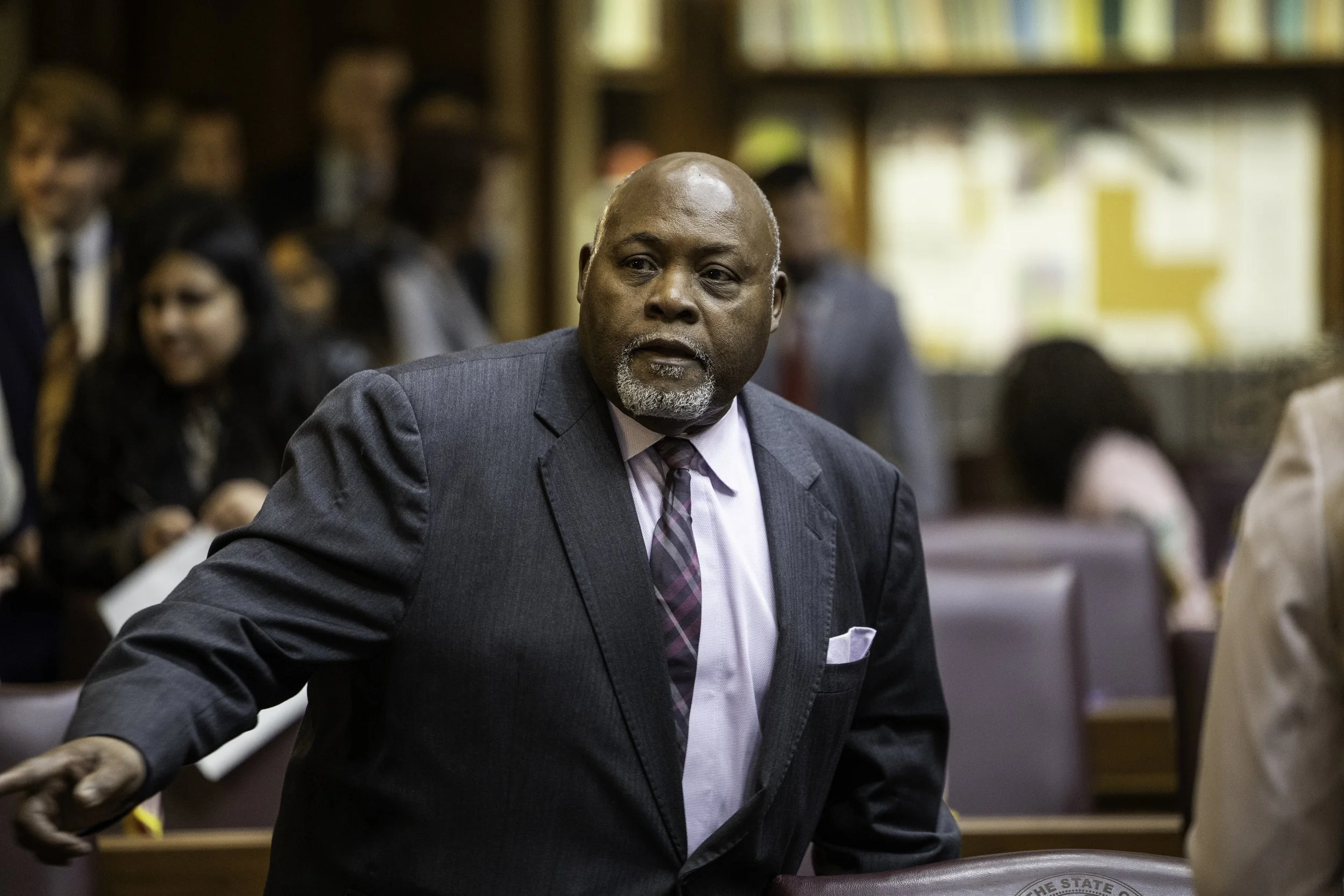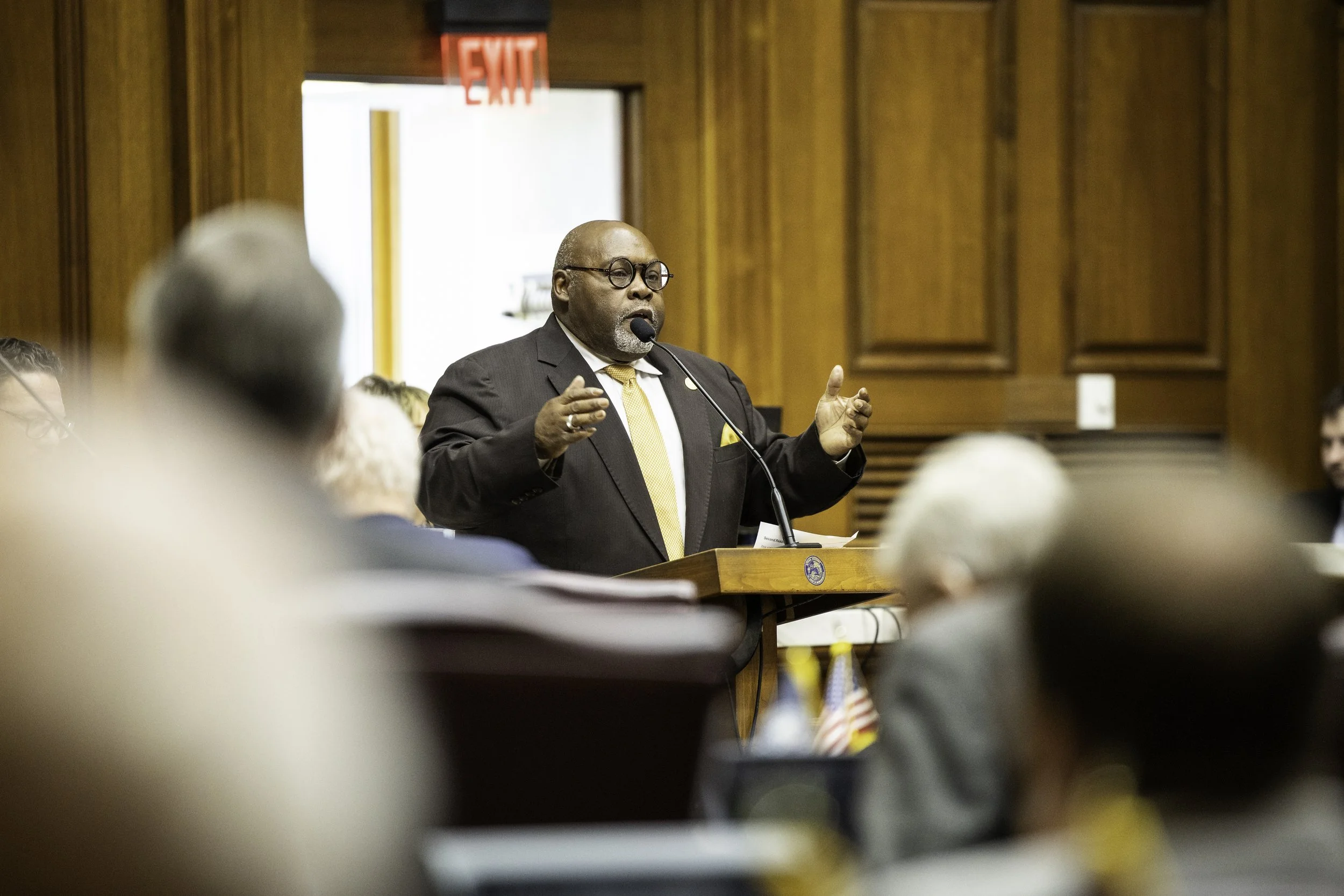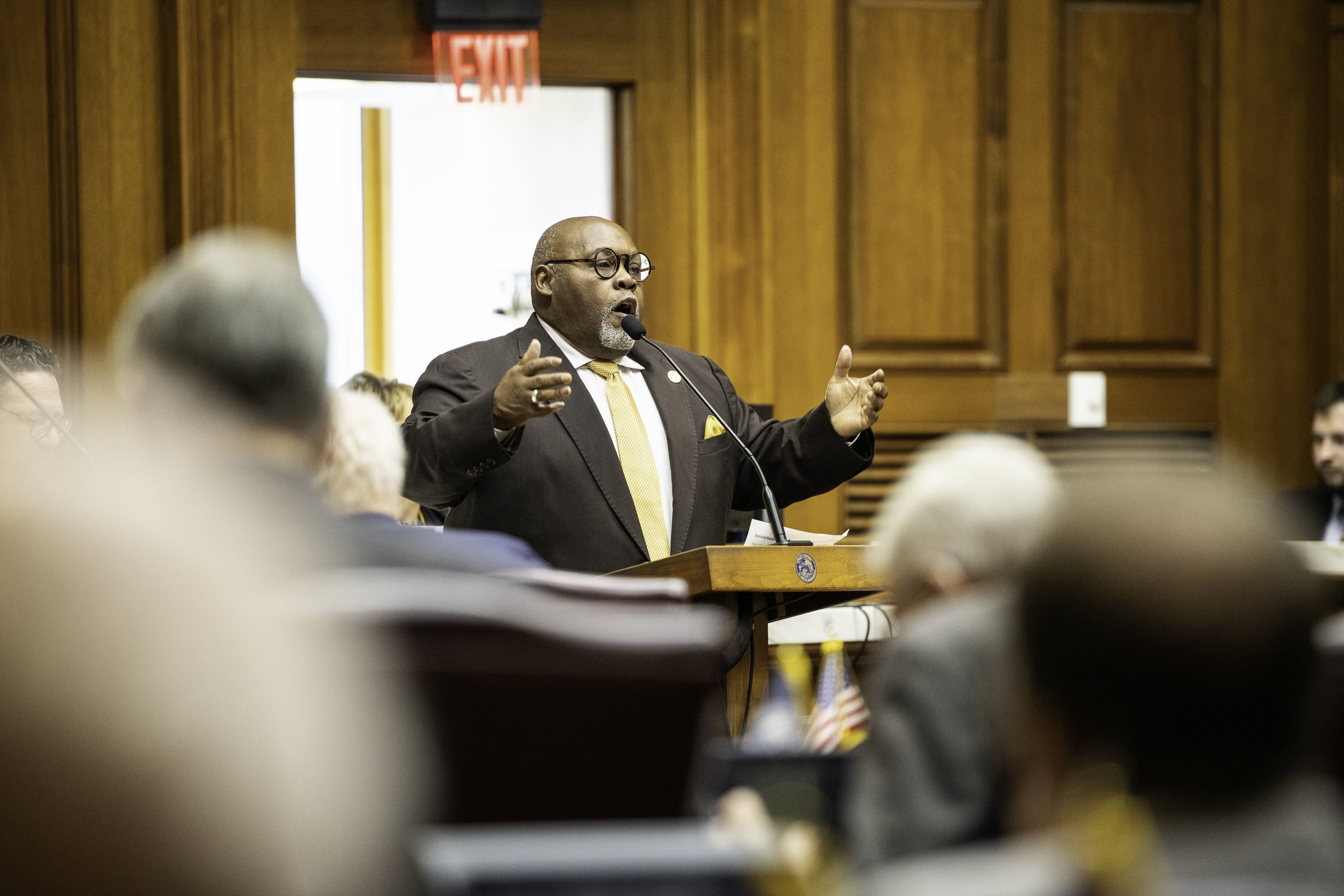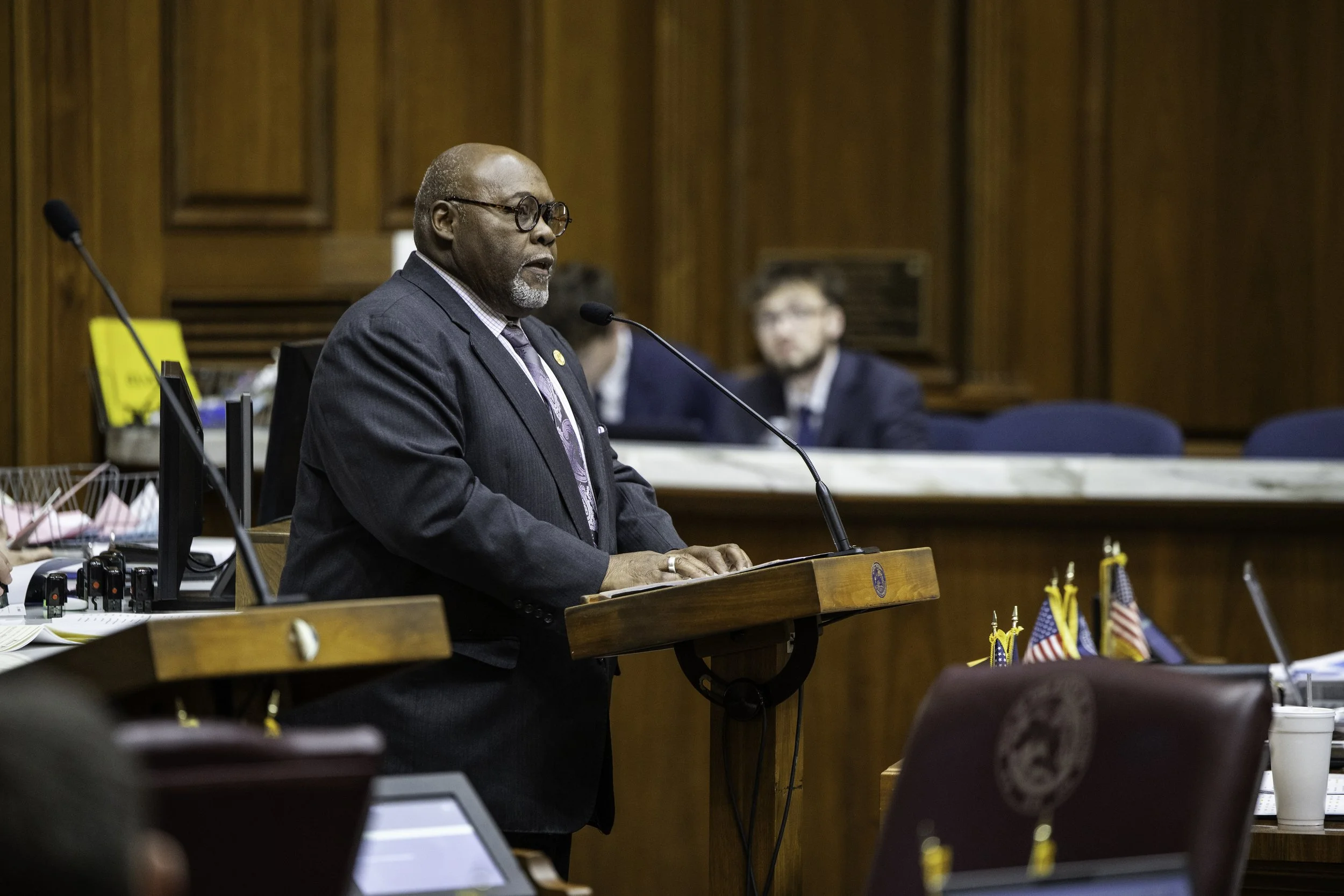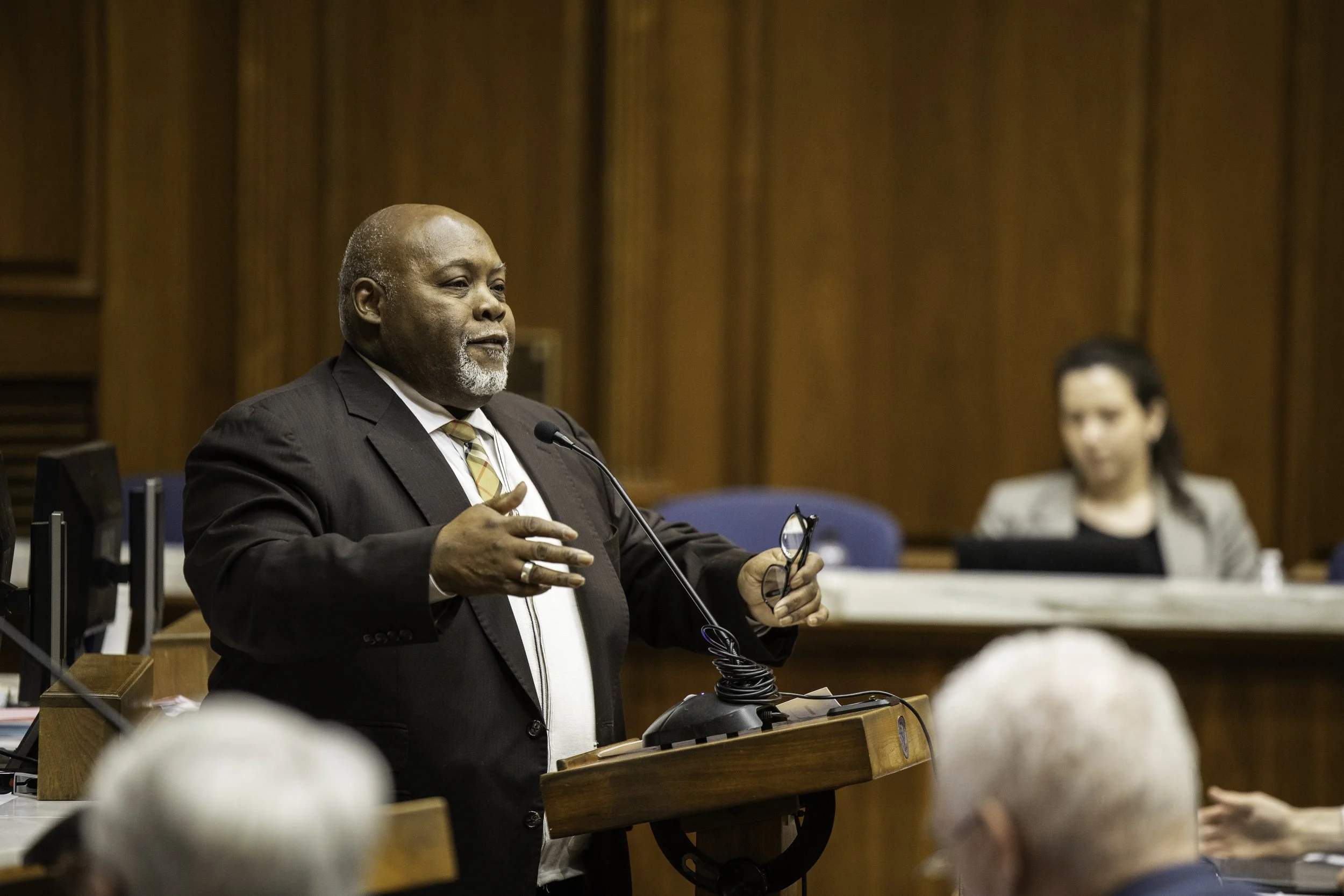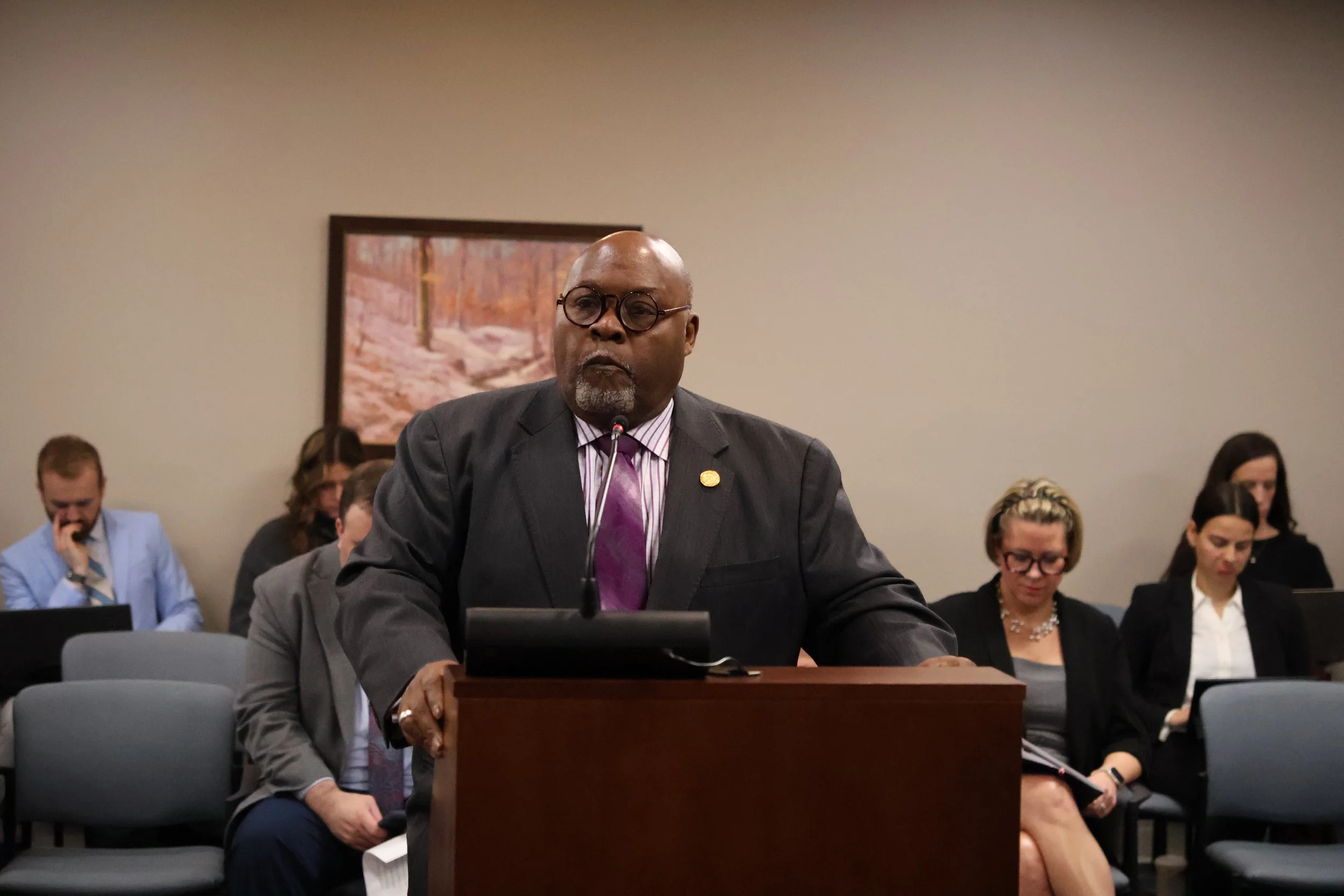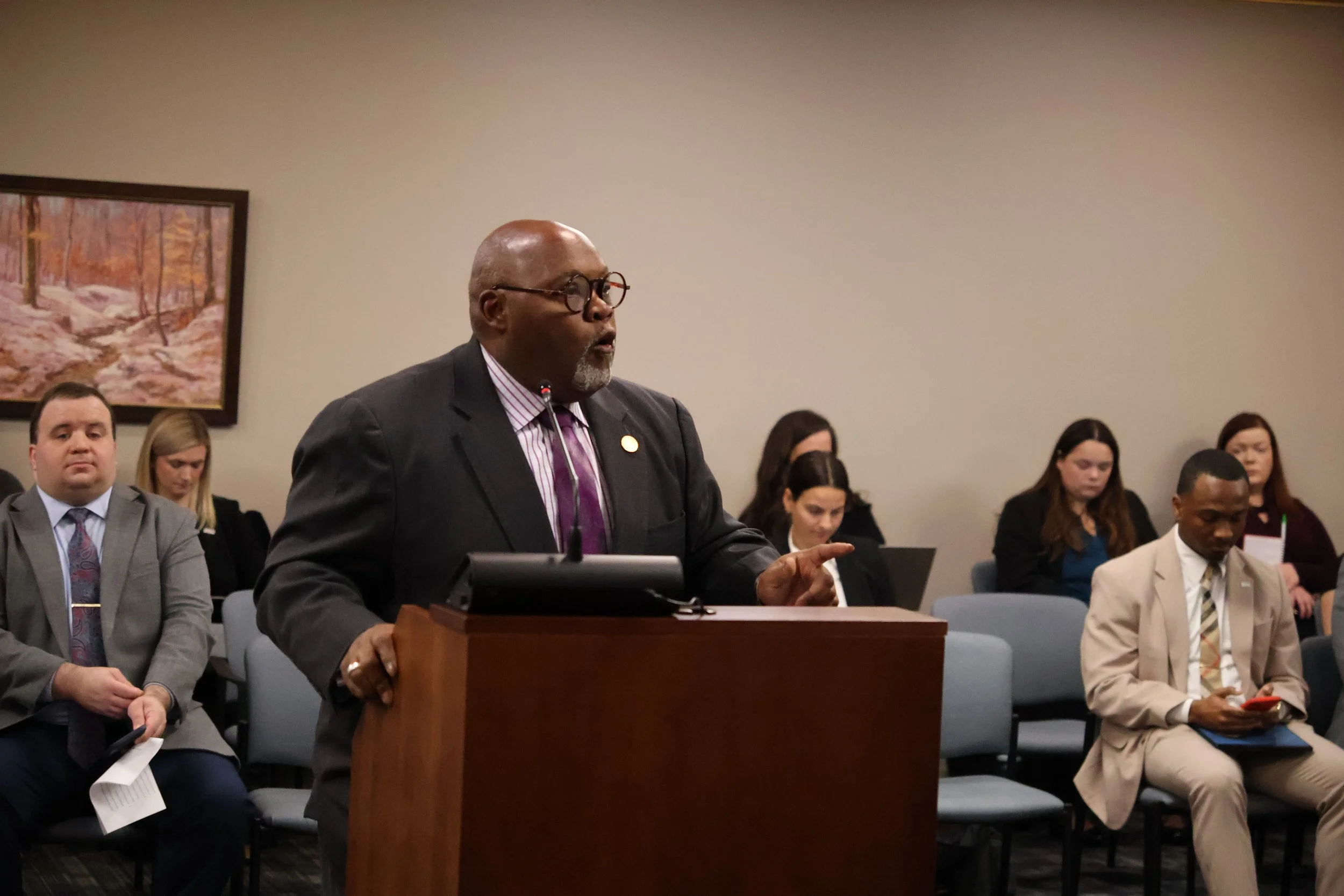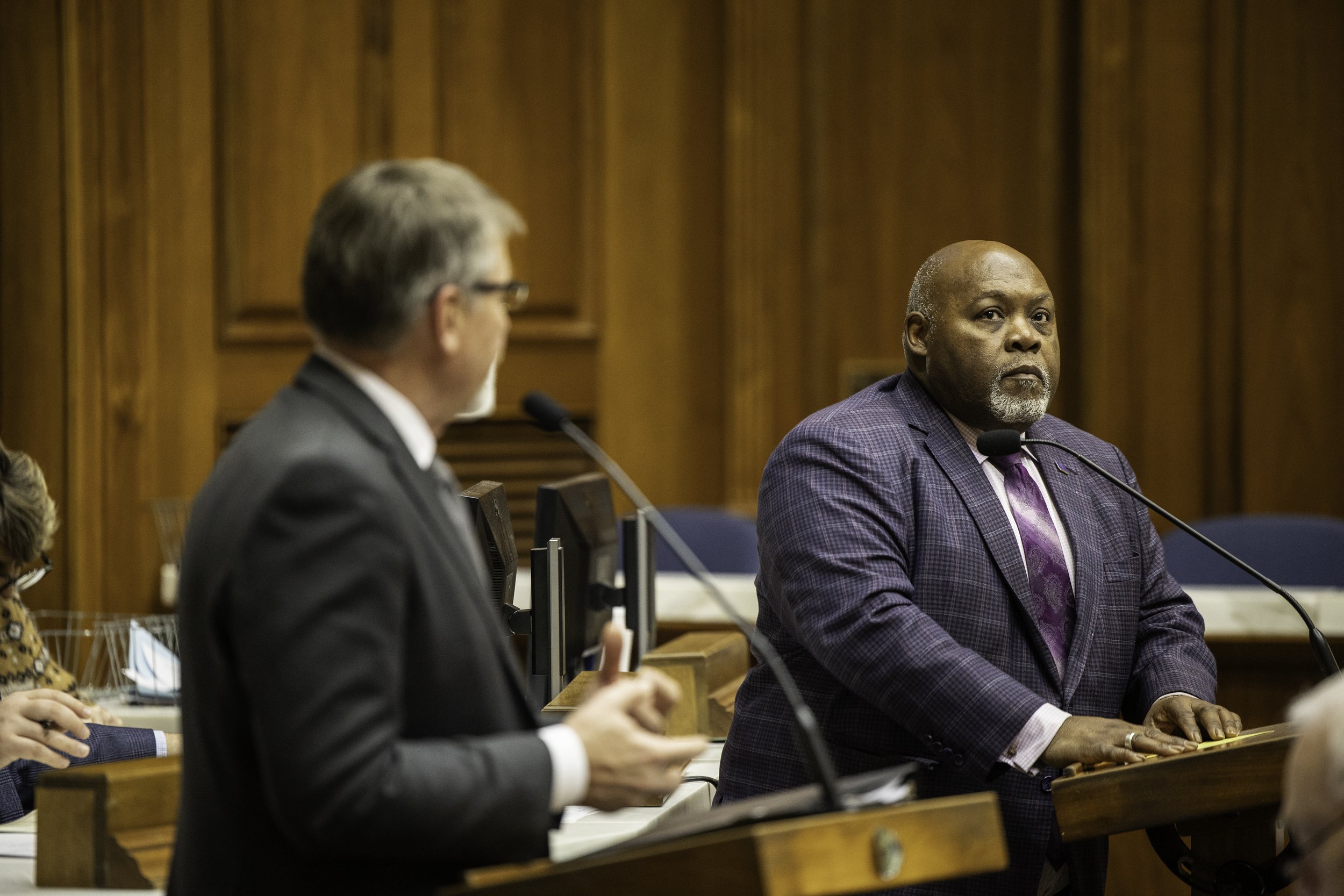Latest News
Find our archive of news distributions below. To request a media interview or statement from one of our members, visit our press inquiries page here.
Search Our Press Release Archive
Sort by Rep. or Topic
- Economy
- Education
- IBLC
- Leadership
- Mental Health
- Public Safety
- Rep Renee Pack
- Rep. Alex Burton
- Rep. Blake Johnson
- Rep. Carey Hamilton
- Rep. Carolyn Jackson
- Rep. Cherrish Pryor
- Rep. Chris Campbell
- Rep. Chuck Moseley
- Rep. Dant Chesser
- Rep. Earl Harris Jr.
- Rep. Ed DeLaney
- Rep. Gregory W. Porter
- Rep. John Bartlett
- Rep. Justin Moed
- Rep. Kyle Miller
- Rep. Matt Pierce
- Rep. Maureen Bauer
- Rep. Mike Andrade
- Rep. Mitch Gore
- Rep. Pat Boy
- Rep. Phil GiaQuinta
- Rep. Ragen Hatcher
- Rep. Randy Novak
- Rep. Renee Pack
- Rep. Robin Shackleford
- Rep. Ryan Dvorak
- Rep. Sheila Klinker
- Rep. Sue Errington
- Rep. Tonya Pfaff
- Rep. Vanessa Summers
- Rep. Vernon Smith
- Rep. Victoria Garcia Wilburn
- Rep. Wendy Dant Chesser
Republicans cancel financial lifeline to public schools
Indiana House Republicans will not move forward with House Bill 1259, a cleanup of Senate Enrolled Act 1 (2025), their property tax system overhaul bill. The bill would have allowed counties to adopt an additional local income tax to generate revenue for Indiana’s public schools, recouping some of their losses from SEA 1. In 2028, public schools would have $340 million in potential revenue if each county adopted the optional tax.
Indiana House Republicans will not move forward with House Bill 1259, a cleanup of Senate Enrolled Act 1 (2025), their property tax system overhaul bill. The bill would have allowed counties to adopt an additional local income tax to generate revenue for Indiana’s public schools, recouping some of their losses from SEA 1. In 2028, public schools would have $340 million in potential revenue if each county adopted the optional tax.
The amount each school corporation would have received with the optional LIT tax is available here.
State Rep. Gregory W. Porter (D-Indianapolis) released the following statement:
“Our public schools are hurting. The majority continues to give private and charter schools full-course meals, while public schools get the scraps.
“This optional county LIT is a crucial lifeline for our public schools. I cannot overstate how desperately they need this source of potential revenue. Large school districts are worried about their ability to grow, while our smaller schools face layoffs, consolidations and a reduction in services.
“It's clear Republicans have no interest in supporting the overwhelming majority of families who choose public schools. They failed to provide homeowners with lasting relief. They defunded our public schools with SEA 1, and they had the opportunity to reverse course, but they failed.”
Porter offers amendment increasing property tax savings for disabled veterans
Today, State Rep. Gregory W. Porter offered an amendment to House Bill 1177 in the House Committee on Ways and Means. The amendment would have increased the property tax deduction for disabled veterans to 100% of a property’s assessed value, an increase from the current maximum of $14,000. Veterans who rent would also have received a renter’s deduction of up to $20,000 of their adjusted gross income. The committee did not take a vote on the amendment.
Today, State Rep. Gregory W. Porter offered an amendment to House Bill 1177 in the House Committee on Ways and Means. The amendment would have increased the property tax deduction for disabled veterans to 100% of a property’s assessed value, an increase from the current maximum of $14,000. Veterans who rent would also have received a renter’s deduction of up to $20,000 of their adjusted gross income. The committee did not take a vote on the amendment.
Porter released the following statement:
“This amendment is about giving back to our disabled veterans who gave everything for our country. They deserve the most relief possible from the state because of their sacrifices. Skyrocketing property taxes are threatening the security of older homeowners with fixed incomes. They need immediate relief.
“We also need to help our veterans who rent. There are 10,000 veterans who are renters, and they received nothing in the majority’s current proposal. They deserve relief, too.
“I don't want our disabled veterans to be in a precarious financial situation because of a lack of assistance from the state. We have a duty to care for them. We have a duty to help our veterans just like they helped our country.
“A vote was not taken on my amendment today, but Republicans seemed open to collaboration. I will continue to push for this vital relief for our disabled veterans this session.”
Republicans strike down amendments funding child care and Pre-K vouchers
Today, State Rep. Gregory W. Porter offered two amendments to House Bill 1177 in the House Committee on Ways and Means. The amendments offered two different options to reverse the cuts and fully fund the Child Care Development Voucher Fund (CCDF) and the On My Way Pre-K program (OMWPK).
Today, State Rep. Gregory W. Porter offered two amendments to House Bill 1177 in the House Committee on Ways and Means. The amendments offered two different options to reverse the cuts and fully fund the Child Care Development Voucher Fund (CCDF) and the On My Way Pre-K program (OMWPK).
The first amendment would have appropriated $300 million from the Financial Responsibility and Opportunity Growth Fund. The second amendment would have appropriated $256.7 million from the State General Fund. Both amendments were voted down.
“Indiana has a child care crisis, not challenges, not difficulties,’ Porter said. “It’s a crisis. Child care centers can’t keep their doors open after the reimbursement rate cuts. Since September, close to 200 providers have already closed.
“A properly funded child care system is an investment in our society. It’s about getting kids the care they need and ensuring our parents are able to work to support their families. Parents shouldn’t have to choose between their livelihoods and caring for their children.
“These amendments were common-sense solutions that supported our families with existing revenue. But Republicans voted them down. They continue to prioritize a ballooning surplus over the real needs of Hoosier families.”
Porter passes amendment creating transparency for Hoosier homeowners
Today, State Rep. Gregory W. Porter passed an amendment to House Bill 1406 in the House Committee on Ways and Means. Porter’s amendment requires the county treasurer to list if the homeowner saved money, and the amount, if applicable, on their 2027 property tax bill.
Today, State Rep. Gregory W. Porter passed an amendment to House Bill 1406 in the House Committee on Ways and Means. Porter’s amendment requires the county treasurer to list if the homeowner saved money, and the amount, if applicable, on their 2027 property tax bill.
“SEA 1 was a mess, “ Porter said. “Let the math do the talking. I want homeowners to see how little they actually save on their property taxes, if they save anything at all.
“I keep hearing that homeowners will pay less on their bills in 2026 than in 2025. That’s not true. The average homeowner won’t save anything. Their bills will be lower than they would have been, but still higher than their payment in 2025.
“Our neighbors who need the most financial relief will actually pay more. Homeowners with low-assessed-value homes will see a 35.4% property tax increase by 2031. SEA 1 isn’t tax relief; it’s a shift of the tax burden. I’m thankful this amendment passed so homeowners can see the facts and come to their own conclusions.”
Porter: ‘What’s going on with Dolly’s Library”
Today, Jan. 21, State Rep. Gregory W. Porter offered two amendments to support Dolly Parton’s Imagination Library in the House Ways and Means Committee.=
Today, Jan. 21, State Rep. Gregory W. Porter offered two amendments to support Dolly Parton’s Imagination Library in the House Ways and Means Committee. The first amendment would have created a state tax credit for individuals who donate to the literacy program, and the second amendment would have appropriated $6 million from the general fund. Both amendments were rejected by the majority.
The Braun administration has yet to release a fundraising total for Dolly Parton’s Imagination Library since it changed to private donations.
“What’s going on with Dolly’s Imagination Library?” Porter said. “We heard about a single donation last July, but that’s it. We have no clue how much has been raised, no clue if it’s enough. It’s crickets. It’s a quiet phase-out of the program.
“The Braun administration dropped the ball on the SUN Bucks program, and it appears they’re dropping the ball on this. Indiana isn’t feeding kids this summer, and now we can’t give toddlers free books. The argument that we don’t have the money isn’t valid since we’ll have a $5 billion surplus.
“Indiana being a pro-family state means properly funding programs that benefit Hoosier families.”
Porter bill increasing awareness for Alzheimer’s and dementia heads to the Senate
Today, Jan. 20, the Indiana House of Representatives unanimously passed House Bill 1029. The bill increases public awareness of Alzheimer’s and dementia through educational outreach. The Indiana Department of Health (IDOH) would need to add information to its website, include the two diseases in its existing public health campaigns and develop training opportunities for health care providers.
Today, Jan. 20, the Indiana House of Representatives unanimously passed House Bill 1029. The bill increases public awareness of Alzheimer’s and dementia through educational outreach. The Indiana Department of Health (IDOH) would need to add information to its website, include the two diseases in its existing public health campaigns and develop training opportunities for health care providers.
“I’m thankful that this bill is headed to the Senate,” State Rep. Gregory W. Porter (D-Indianapolis) said. “The House passage of this bill represents the tireless work of the Alzheimer’s Association, Indiana’s Area Agencies on Aging and so many others. HB 1029 is about ensuring our seniors are able to age with comfort and dignity.
“In 2021, Indiana had 276 million hours of unpaid care. A huge percentage of our seniors are cared for by their family members. By increasing public education, we ensure the general population has the information they need to care for their loved ones. This is a disease that is affecting all of us.
“This bill is in honor of my late mother and other families who have lived with this life-changing illness. I’m proud to have authored this legislation for our seniors, and I’ll continue my work as it heads to the Senate.”
Porter bill increasing education for Alzheimer’s and Dementia passes in committe
Today, Jan. 13, the House Committee on Public Health passed House Bill 1029 with a vote of 13-0. The bill increases public awareness of Alzheimer’s and dementia through educational outreach. The Indiana Department of Health (IDOH) would need to add information to its website, include the two diseases in its existing public health campaigns and develop training opportunities for health care providers.
Today, Jan. 13, the House Committee on Public Health passed House Bill 1029 with a vote of 13-0. The bill increases public awareness of Alzheimer’s and dementia through educational outreach. The Indiana Department of Health (IDOH) would need to add information to its website, include the two diseases in its existing public health campaigns and develop training opportunities for health care providers.
State Rep. Gregory W. Porter (D-Indianapolis) released the following statement:
“This is a much-needed step forward. Close to 11% of Hoosiers over 65 have Alzheimer's. That’s why these diseases need to be included in Indiana’s public health outreach. People need to know the risk factors, the signs and their treatment options. Better education leads to better prevention and intervention.
“HB 1029 is also a labor of love. I was the caregiver for my late mother, who had Alzheimer’s. You watch your loved one change right before your eyes. I basically had two mothers, one before and one after. Most family members, who provide unpaid care, don’t know how to manage it. That’s another reason why education is essential. Family members gain a deeper understanding of how to provide compassionate, dignified care.
“This bill is in honor of my mother, and I look forward to getting it across the finish line for our seniors.”
Porter comments on revenue, economic and Medicaid forecasts
Today, Dec. 18, the State Budget Committee (SBC) discussed the revenue, economic and Medicaid forecasts before the remainder of the 2026 legislative session. State Rep. Gregory W. Porter (D-Indianapolis) released the following statement about the revenue and economic forecasts:
Today, Dec. 18, the State Budget Committee (SBC) discussed the revenue, economic and Medicaid forecasts before the remainder of the 2026 legislative session. State Rep. Gregory W. Porter (D-Indianapolis) released the following statement about the revenue and economic forecasts:
“Indiana’s doing much better than expected. We’re up by almost $1.8 billion for the biennium. That warrants reopening the state budget. The budget deficit we expected isn’t happening.
“The majority put Indiana’s limited funds towards their voucher expansion. Then they cut social services, including Health First Indiana, Housing First and individual financial aid. Right now, Hoosiers need those safety nets.
“Roughly 75% of people are using credit cards to buy Christmas presents. That’s an economic forecast in itself. Hoosiers don’t have any breathing room. Let’s use people’s hard-earned tax dollars for their benefit, instead of hoarding it in the surplus.”
The Indiana Family and Social Services Administration (FSSA) expect to save $465 million from its 2025 Medicaid appropriation. Porter released the following statement about the Medicaid forecast:
“I have one question for the Braun administration: Is it worth it? You cut reimbursement rates for the Child Care Development Fund (CCDF). Now, multiple providers have closed, and 30,000 kids are on the waitlist. There are 9,188 seniors on the Pathways waitlist, a 16% increase from June. You’ll save even more money from today’s changes to ABA therapy at the expense of children in need.
“The savings prove we can shrink the waitlists. Instead, you're padding stats. You’ve let Indiana’s most vulnerable go without care to cut costs. These were needless, cruel cuts that put fiscal conservatism above the common good. I encourage Gov. Braun to reverse his cuts and shrink the waitlists.”
Porter calls for details on MDwise split since state owes company $313 million
Last week, the Indiana Family and Social Services Administration (FSSA) cut ties with MDwise, a managed care health plan for Medicaid’s Healthy Indiana Plan (HIP) and Hoosier Healthwise programs. Around 300,000 Hoosiers will need to choose a new provider during open enrollment.
Last week, the Indiana Family and Social Services Administration (FSSA) cut ties with MDwise, a managed care health plan for Medicaid’s Healthy Indiana Plan (HIP) and Hoosier Healthwise programs. Around 300,000 Hoosiers will need to choose a new provider during open enrollment.
State Rep. Gregory W. Porter (D-Indianapolis) is calling for details on the split – especially since Indiana owes MDwise an estimated $313 million.
“Continuity of care is the most important thing,” said Porter. “Less than two months is a short transition. Our case managers are overloaded, and it's the holidays. We can’t let people fall through the cracks.
“This is starting to look similar to the IBM debacle. Indiana still owes MDwise $313 million. Will this lead to a long lawsuit? Indiana and IBM went back and forth for a decade. MDwise is already seeking an injunction and investigation. Legislators deserve the details since the FSSA’s decision will lead to legal action.
“I expect answers at the next State Budget Committee meeting, and I’m preparing legislation to ensure that big changes like this are fully deliberated.”
Porter: ‘Don’t confuse frugality with morality’
Following two federal court orders, the federal government will release $4.65 billion to partially fund the Supplemental Nutrition Assistance Program (SNAP). The Family and Social Services Administration (FSSA) announced that payments will be delayed by a week, and maximum benefits will be reduced by 50%. This reduction will be compounded by the benefits formula.
Following two federal court orders, the federal government will release $4.65 billion to partially fund the Supplemental Nutrition Assistance Program (SNAP). The Family and Social Services Administration (FSSA) announced that payments will be delayed by a week, and maximum benefits will be reduced by 50%. This reduction will be compounded by the benefits formula.
SNAP benefits are calculated by subtracting 30 percent of a household’s monthly net income from the maximum benefit for their household size. A family of three making a net income of $900 per month typically receives $515. Under the current plan, they’ll only receive $122, a more-than-75% cut, from the reduced maximum and typical formula.
State Rep. Gregory W. Porter (D-Indianapolis) issued a letter to the Chairman of the State Budget Committee (SBC) requesting immediate, emergency action without waiting for the next regular meeting.
“Partial funding doesn’t change that this is a crisis,” Porter said. “Our families will receive little to no benefits. These payments won’t even cover a single trip to the grocery store. Pointing fingers about the government shutdown doesn’t keep our families fed.
“I’ll repeat what I said last week: This is an emergency that requires immediate action. Other states, like Virginia, are finding ways to supplement SNAP with state dollars. We could send $10 million to food banks this week. This isn’t ‘too complicated’ to solve.
“Don’t confuse frugality with morality. We can do the right thing through simple actions from the Governor and SBC.”
House Democrats call on Gov. Braun to fund food pantries amid SNAP pause
Following Republican lawmakers’ refusal to fund the Supplemental Nutrition Assistance Program (SNAP), the Indiana House Democratic Caucus is calling on Gov. Mike Braun to send state dollars to Indiana’s food banks. Indiana’s food banks and pantries are running out of food due to record demand.
Following Republican lawmakers’ refusal to fund the Supplemental Nutrition Assistance Program (SNAP), the Indiana House Democratic Caucus is calling on Gov. Mike Braun to send state dollars to Indiana’s food banks. Indiana’s food banks and pantries are running out of food due to record demand.
Roughly 571,594 Hoosiers received SNAP benefits last month. One in eight Indiana SNAP recipients are children. Due to the federal government shutdown, SNAP benefits will pause indefinitely starting tomorrow, Nov. 1.
“We cannot sit by and watch our fellow Hoosiers go hungry,” House Democratic Leader Rep. Phil GiaQuinta (D-Fort Wayne) said. “If our Republican colleagues in the General Assembly won’t help our most vulnerable residents, we’re calling on Gov. Braun to do the right thing and make sure our food pantries throughout the state have support. Hunger isn’t a partisan issue. Hoosiers aren’t to blame for the government shutdown, and they shouldn’t suffer because of D.C.’s inability to compromise.”
“Send money to the food banks to help our neighbors,” State Rep. Gregory W. Porter (D-Indianapolis) said. “Food banks are a budget line item we can easily augment. We have the money. If nothing is done, thousands of children’s only meals will be free school lunch. This is a simple request to do the right thing and help the least of these.”
Porter proposal to help Hoosiers at risk of losing vital services
Hundreds of thousands of Hoosiers are at risk of losing their Special Supplemental Nutrition Program for Women, Infants and Children (WIC) and Supplemental Nutrition Assistance Program (SNAP) next month due to the ongoing federal government shutdown. 571,594 Hoosiers received SNAP benefits as of September 2025, and an average of 155,500 pregnant women and infants received WIC benefits as of May 2025.
Hundreds of thousands of Hoosiers are at risk of losing their Special Supplemental Nutrition Program for Women, Infants and Children (WIC) and Supplemental Nutrition Assistance Program (SNAP) next month due to the ongoing federal government shutdown. 571,594 Hoosiers received SNAP benefits as of September 2025, and an average of 155,500 pregnant women and infants received WIC benefits as of May 2025.
State Rep. Gregory W. Porter (D-Indianapolis), ranking Democrat on the House Ways and Means Committee and a ranking member of the State Budget Committee (SBC) plans to make recommendations to the latter group during an upcoming SBC meeting to transfer funds to the Family and Social Services Administration and the Division of Family Resources to cover the deficiency for SNAP payments. HIs proposal would also add a supplemental payment to food banks in the state.
The proposal would provide a tiered increase to Indiana’s supplemental payments for food banks from $2 million to $5 million, with an additional $2 million monthly as needed.
Porter issued the following statement regarding his planned proposal:
“Regardless of their political affiliation, every Hoosier should be horrified by the notion of a child going hungry. If SNAP and WIC benefits are cut, that’s exactly what will happen. We have an opportunity to ensure that Hoosiers continue to receive these vital services, regardless of whether the federal government reopens in the near future.
“It can’t be overstated that the state of Indiana has the ability to prevent this – this is simply about whether we have the political will to keep children, pregnant women and the elderly from going hungry.
"Just last month, the State Budget Committee approved a decision to reallocate funds from the Indiana Department of Correction toward the ‘Speedway Slammer,’ which houses detainees suspected of being in the country without documentation. SBC did this without any certain guarantee that the federal government will reimburse them for these services.
"If we can make a $16 million bet on prisons, we can surely bet on keeping Hoosiers from hunger. As a lawmaker, my priority is making sure Hoosiers have the resources they need to thrive, and this proposal would do just that. Hoosiers should not suffer because the folks in Washington, D.C. can’t get their act together. I’m calling on my colleagues in the State Budget Committee to find the political will to put the health and well-being of Hoosiers over any political games.”


